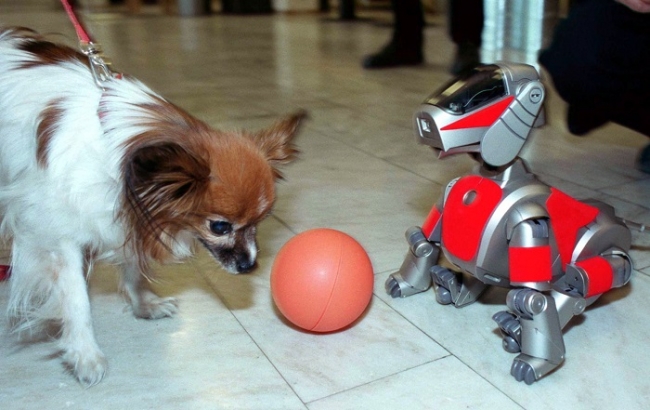
Robotic dogs may soon be man's best friend.
Dr. Jean-Loup Rault of the University of Melbourne said in a recently published journal that the current form of pet ownership is likely unsustainable in today's growing population, and people may soon resort to having robotic dogs and cats.
"Our shared history with domestic animals goes back tens of thousands years. However, technological advances in the last decades revolutionized our means of communication, and particularly our social lives," Rault said in the May 7 issue of Frontiers in Veterinary Science journal.
"A legitimate but tacit question is whether this technological evolution will also change human-animal relationships, and concurrently, the place of pets in human societies."
Rault¸ also a researcher in the university's Animal Welfare Science Center, said the technology in today's digital era may enable people to replace the norm of animal use.
Rault cited several examples of the "artificial pet movement" in the past, including Tamagochi, a handheld digital pet popular in the 1990s; and the Sony AIBO robotic pet dog, which he said "children treated as if it was a living dog."
In the United States, Rault said a robotic baby seal called Paro is used as a medical device to elicit positive responses from patients. This also shows an advantage of robotic pets as substitutes at times that the real, live ones may be undesirable including for old and allergic patients, he added.
He said that in Japan, funerals are held for AIBO robotic dogs, and Sony used to have tech "clinics" that fixed the virtual pets.
"Overall, robotic pets appear to elicit similar responses from humans as live pets, but it is unclear whether they stimulate identical responses and replace that need for a pet,” he said in the journal. “Notwithstanding that, scientists are still debating the function and benefits humans derive from (live) pets."
Although Rault admitted that the studies and programs on artificial pets are only been on their starting stage, "quick technological progress is to be expected."
Once a technological revolution on pet ownership happens, Rault said people should still consider many ethical questions.
"Are animals what make us humans? Or are we witnessing a leap into what domestication always was: to select animals to be perfect pets, with a need to update the definition of pets as an animal or an artificial device kept for pleasure?" he said in the journal. "Animal welfare science, a field that emerged in the 1960s, will likely have to follow this radical change in our relation to animals."
"This may be for the best with a more egalitarian and considerate attitude for life," he added.
















